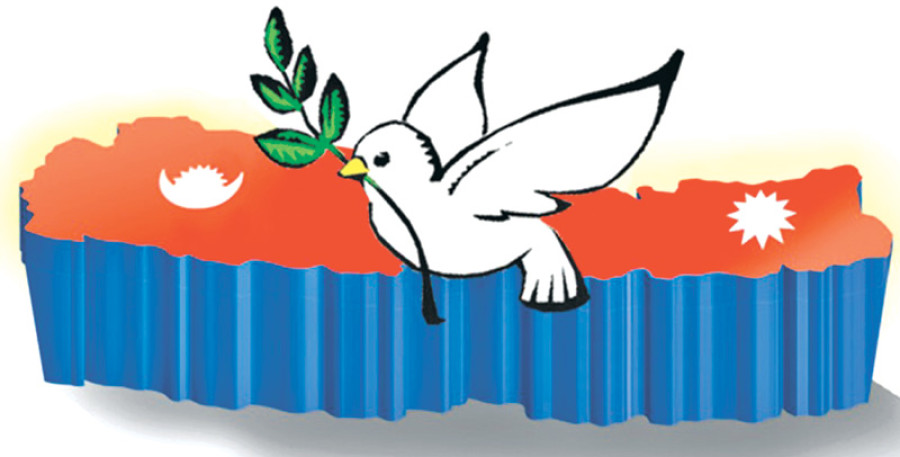National
TJ bodies demand legal amendment to function
The transitional justice bodies have expressed optimism to complete their tasks within the extended mandate if the government amends and enacts the laws required for moving the ongoing process forward.
The transitional justice bodies have expressed optimism to complete their tasks within the extended mandate if the government amends and enacts the laws required for moving the ongoing process forward.
Chairs of the Truth and Reconciliation Commission (TRC) and the Commission of Investigation on Enforced Disappeared Persons (CIEDP) on Sunday assured the victims that they would make the best use of extended tenure of the commissions in finding out the truth of the incidents and recommend action against the perpetrators of rights violation occurred during a decade-long conflict.
At a programme held on Sunday to commemorate the 13th death anniversary of Rina Rasaili, a teenage Dalit girl who was raped and killed at her home, TRC and CIEDP chairpersons emphasised on amendment to the transitional justice law as prerequisites for the commissions to function fully.
“We are all set to start detailed investigation but we still do not have laws under which commission is supposed to recommend legal action against perpetrators,” said CIEDP Chair Lokendra Mallick. He also argued that the reparation amount proposed by government was not enough, which should be left to the discretion of the commission.
TRC Chair Surya Kiran Gurung warned that the failure of the transitional process would ultimately cost the country dearly. “Political leadership should realise the gravity of the ongoing process. They have national and international obligation to address war crimes on time. And the process is on to address them properly,” said Gurung. “
The two commissions between them have registered over 60,000 complaints of the conflict victims which are awaiting a detailed investigation.
“I believe the commissions should first get a firm commitment from the political leadership in support of the process. Only then will we be assured that the process will move forward smoothly,” said Phanindra Luitel, whose father was hacked to death by the rebel Maoists.
He also argued that the rights activists, victims and the commissions should decide the course of process. Luitel advised the commission to begin with reparation process to win the confidence of the victims, then move to judicial recommendations.
Chairperson of the Conflict Victims Common Platform (CVCP) Suman Adhikari said that victims want closure to their cases.
“But it does not mean the commissions can move ahead without consulting with the victims,” he added.
“The commission should ask the victims about their concerns. They have done nothing in the past, which compel victims to be sceptic about their tasks.”
CVCP General Secretary Ram Bhandari, who also represents the disappeared community, argued that the civil society, rights activists, victim community and commission should work together to pressure the government to facilitate the process.
“Rights defenders and other civil society leaders should help build victim-centric approach and national standard of the transitional justice process instead of talking international standard alone.”




 14.24°C Kathmandu
14.24°C Kathmandu














